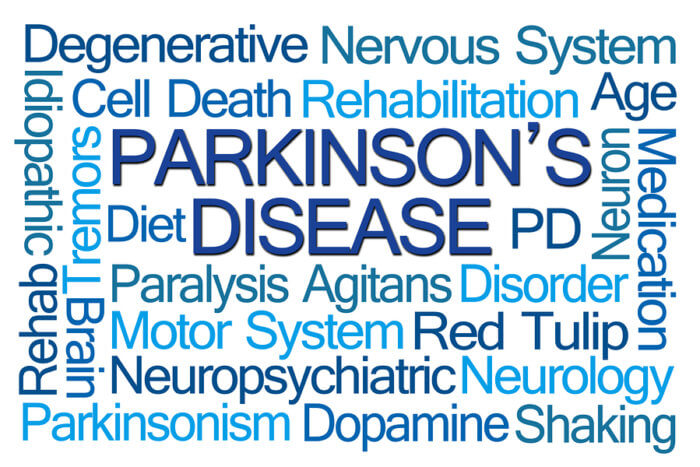Communication Strategies For Taking Care Of Elderly Parents

There’s no denying that effective communication is crucial when it comes to taking care of elderly parents. At Central Scottsdale Assisted Living by MD Senior Living, we understand the importance of clear and respectful communication in ensuring the well-being and happiness of our residents. Open lines of communication are key when discussing medical needs, daily routines, or emotional support. In this blog post, we will explore imperative communication strategies for caregivers of elderly parents, providing valuable insights and tips to enhance your caregiving experience. Read on to discover how to improve your communication skills and strengthen your relationship with your loved ones.

Establishing Effective Communication Techniques
Active Listening Skills
Effective communication with elderly parents begins with active listening skills. While engaging in conversations with your loved ones, paying attention to their verbal and nonverbal cues is important. By listening attentively to their concerns and needs, you can build trust and understanding in your relationship. Central Scottsdale Assisted Living by MD Senior Living in Scottsdale, AZ, emphasizes the importance of active listening to create a supportive environment for elderly residents.
Clear and Compassionate Speaking Strategies
With clear and compassionate speaking strategies, you can effectively convey your messages and address your parents’ needs. Speaking calmly and with empathy can help avoid misunderstandings and promote safety and comfort. Central Scottsdale Assisted Living by MD Senior Living in Scottsdale, AZ, encourages family members to communicate with clarity and compassion when interacting with elderly loved ones.
Speaking clearly and using simple language can help seniors better understand information and engage in meaningful conversations. Additionally, expressing empathy and understanding in your voice can create a welcoming and comforting atmosphere for elderly parents. Combining clear communication with compassion can enhance your connection with your loved ones and improve their overall well-being.

Overcoming Communication Barriers with Aging Parents
Addressing Hearing or Cognitive Impairments
One common challenge when communicating with aging parents is addressing hearing or cognitive impairments. According to studies, about 25% of adults aged 65-74 and 50% of those over 75 have hearing loss. To overcome this barrier, it is essential to speak clearly and face-to-face, minimize background noise, and consider using visual aids or writing things down to enhance understanding.
Navigating Emotional and Psychological Challenges
One of the most challenging aspects of communicating with aging parents is navigating emotional and psychological challenges. Dealing with changing roles, loss of independence, or cognitive decline can lead to frustration, conflict, and distress for both parties. It is essential to approach these conversations with empathy, understanding, and patience. Seeking support from counselors, support groups, or healthcare professionals can also be beneficial in managing these challenges.
Practical Tools for Everyday Conversations
Using Technology to Enhance Communication
Many families struggle to find efficient ways to stay connected and communicate effectively when caring for their elderly parents. With a rising number of seniors living in assisted living facilities like Central Scottsdale Assisted Living by MD Senior Living in Scottsdale, AZ, technology can be a valuable tool to enhance communication. Video calls, messaging apps, and scheduling tools can help family members stay connected and informed about their loved one’s well-being.

Scheduling and Structuring Family Meetings
Structuring and scheduling family meetings is essential to ensuring everyone is on the same page when caring for elderly parents. With Central Scottsdale Assisted Living by MD Senior Living being a primary point of contact in Scottsdale, AZ, regular family meetings can provide an opportunity to discuss care plans, share updates, and address any concerns. To ensure productive discussions, establish clear agendas, assign roles, and set specific goals for each meeting.
Creating a Supportive Environment
Encouraging Autonomy and Involvement
Not only is it essential to ensure a comfortable physical environment for elderly parents, but it is also crucial to promote their autonomy and involvement in decision-making. Research from Central Scottsdale Assisted Living by MD Senior Living in Scottsdale, AZ, shows that seniors with a sense of control over their lives tend to have a higher quality of life and better overall well-being. To encourage autonomy, involve them in discussions about their care, respect their preferences, and empower them to make choices whenever possible.
The Impact of Empathy and Patience
One of the most vital aspects of creating a supportive environment for elderly parents is approaching interactions with empathy and patience. Studies have shown that seniors respond positively to empathetic and understanding caregivers. This approach can significantly reduce stress levels and improve overall mental health. Practicing patience can enhance communication and strengthen your relationship with your elderly parents.

Final Words
Following this guide on effective communication strategies for taking care of elderly parents can help improve relationships, ensure proper care, and enhance overall well-being for both caregivers and seniors. By utilizing open and honest communication, active listening, empathy, patience, and clear expectations, caregivers can create a more supportive environment for their aging loved ones. Communication is vital in providing the best care and maintaining a solid bond with elderly parents. Stay proactive and compassionate, and never hesitate to seek help. Contact us for more information about effective communication.
FAQ about Effective Communication Strategies For Taking Care Of Elderly Parents
Q: Why is practical communication essential when taking care of elderly parents?
A: Effective communication is crucial when caring for elderly parents, as it fosters understanding, trust, and empathy. It ensures their needs are properly met and helps resolve conflicts or concerns efficiently.
Q: What are some tips for improving communication with elderly parents?
A: Some tips for improving communication with elderly parents include active listening, using clear and simple language, showing patience and empathy, and maintaining a positive and respectful tone during conversations.
Q: How can family members work together to enhance communication when caring for elderly parents?
A: Family members can enhance communication when caring for elderly parents by establishing open and honest communication channels, actively involving everyone in decision-making processes, respecting each other’s opinions, and seeking professional help or counseling to improve communication dynamics.






Leave a Comment